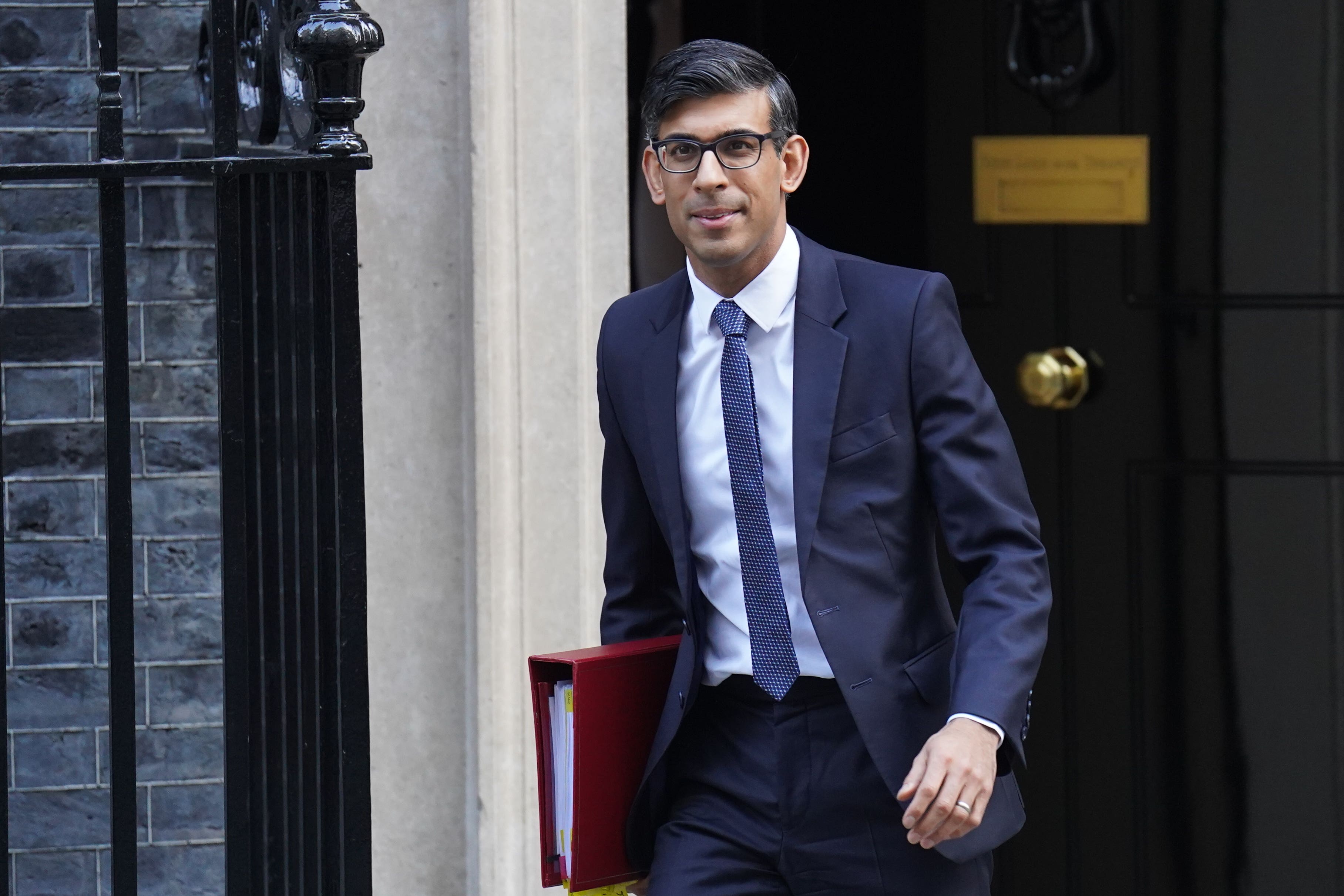Why has Rishi Sunak reorganised Whitehall?
Changes to the ‘machinery of government’ are tried and tested – but rarely so early in a premiership, writes Sean O’Grady


Only 100 or so days into his premiership, the prime minister has decided to reorganise departments and move ministers in a mini reshuffle.
Why is this happening now?
The proximate reason was the departure of Nadhim Zahawi as party chair and minister without portfolio (in the cabinet). Sunak might also have waited to find out whether he also had to remove Dominic Raab, deputy prime minister and secretary of state for justice, but went ahead anyway. After not much more than three months in Number 10 it’s an unusually early refresh of the ministerial team – especially after the turmoil of the last year or so and constant ministerial churn. Generally that is bad for good governance, as it necessarily takes some time for ministers to get a grip on their brief and even longer to get things done. Thus Michelle Donelan, culture secretary only since October has departed for the newly created Science, Innovation and Technology department; while Grant Shapps, now in charge of Energy Security and Net Zero is on his fourth cabinet job in six months, including a six-day spell as home secretary.
What difference will it make?
If reshuffling ministers and “machinery of government” (known as MoG in Whitehall) reforms were sufficient to make a nation successful then Britain would be the best governed and richest place on the planet. In fact the track record suggests that such changes have very little practical effect.
Take the new department for Business and Trade. It can trace its origins all the way back to the Board of Trade, founded in 1786,and the creation of the Department of Trade and Industry in 1970. Trade and industry were then split in 1974, reunited in 1983, rebranded as the “department for enterprise” in 1987, reformed in 2005 as the Department for Productivity, Energy and Industry, but the derisive nickname/acronym PEnIs meant it reverted to Department of Trade and Industry less than a week later. In 2007 the DTI became the Department for Business, Enterprise and Regulatory Reform (BERR) and in 2009 it was reconstituted again as the Department for Business, Innovation and Skills. In 2016, post-Brexit, it was split again and became the Department for Business, Energy and Industrial Strategy and the separate Department for International Trade. Now industry and trade have been reunited once again, but minus energy.
Various changes on energy policy, the universities and technology have popped in and out, according to fashion. The new Department of Science, Innovation and Technology as a symbol of Rishi Sunak’s commitment to new industries is vaguely reminiscent of Harold Wilson’s similar modernising Ministry of Technology (1964-70).
It’s fair to say that the cumulative affect of these reforms on the trade rate of growth has been undetectable; indeed the constant reorganisations, churn of ministers and lurches in policy may well have hindered industry and commerce over the years. At best the reorganisations and personalities involved reflected and amplified the outlook of the government of the day, be it, for examples, corporatism (Walker 1972-74), state control (Benn 1974-75), free markets (Lord Young, 1987-89), intervention (Heseltine 1992-95) or post-Brexit global Britain trade deals (Truss 2019-21).
Is there anything to look forward to?
A creative scriptwriter could probably make a fairly amusing re-make of The Odd Couple, featuring new party chair Greg Hands and his deputy Lee Anderson. Hands, the Cambridge-educated MP for Chelsea, ex-investment banker, Germanophile, passionately pro-EU, liberal and globalist easily strikes a comical contrast with Anderson, ex-miner, MP for Mansfield and renowned for his Europhobia and old-fashioned values. The optimists see it as a dream-team ideally suited to appeal to the “blue wall” and “red wall” seats simultaneously. Others fear a marriage made in hell and civil war inside Tory HQ. The one thing they both have in common is a tendency to speak their minds – come what may. Together, they could be dynamite.
We also have the delicious prospect of clashes between the new business and trade secretary, Kemi Badenoch, and the RMT leader Mick Lynch. Equally combative, eloquent and stubborn, they seem well-matched to make life miserable for the nation’s rail users. Let battle commence.
Do the voters care?
In simple terms, no. But given the scrunity of Sunak’s cabinet recently, the prime minister may think that no bad thing.
Join our commenting forum
Join thought-provoking conversations, follow other Independent readers and see their replies
Comments
Bookmark popover
Removed from bookmarks